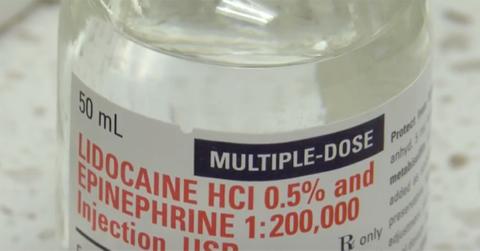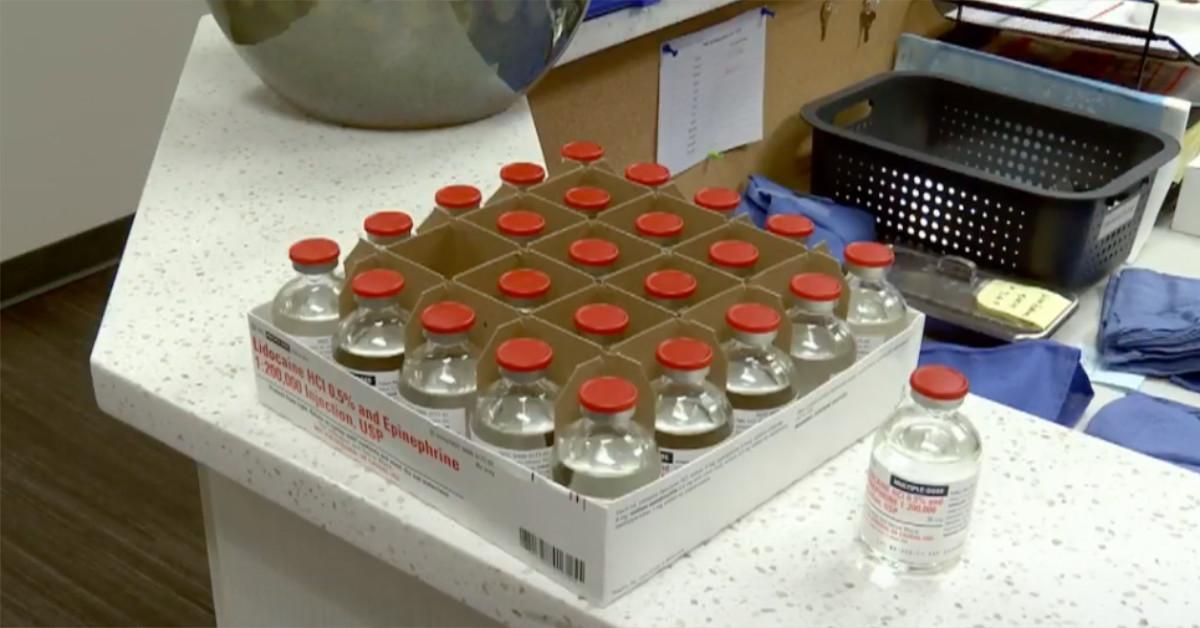Lidocaine Shortage Is “Like McDonald’s Running Out of Cheeseburgers”
A national lidocaine shortage caused by supply chain issues has some doctors canceling surgeries or delaying procedures. What caused the shortage?
Aug. 16 2022, Published 9:51 a.m. ET
A nationwide lidocaine shortage has some doctors canceling surgeries, and it’s just one of more than a hundred drugs in short supply in the U.S. at the moment.
Though these shortages can be traced back to supply chain issues, experts say the COVID-19 pandemic exacerbated but didn’t cause the low supply levels.
Supply chain issues have made lidocaine hard to find for some.
Lidocaine is a local anesthetic that blocks signals at the nerve endings in a patient’s skin, as the Mayo Clinic explains. It's used to create numbness during medical procedures, but it can also be used as pain and itching relief in cases of sunburn, insect bites, poison ivy, and shingles. It can also be used to treat sore throat or to reduce gagging during oral exams or procedures.
Brand-name products with lidocaine include Anestacon, Burnamycin, Burn-O-Jel, Lida Mantle, Lidoderm, LidoRx, LMX 4, LMX 5, Senatec, Solarcaine Cool Aloe, Topicaine, and Xylocaine.
According to WRAL, a supply chain issue had led to a shortage of lidocaine and has caused some hospitals to conserve their supplies of the drug. “It’s just a super-basic rub,” said one doctor, who told WRAL he has had to cancel surgeries because of the lidocaine shortage. “It’d be like McDonald’s running out of cheeseburgers, basically.”
Chris Tart, the president of Highsmith Rainey Specialty Hospital in Fayetteville, N.C., said that the shortage “might delay elective procedures” at outpatient surgery centers — and that the lidocaine shortage might not be resolved until sometime next year.
Shortages are impacting dozens of other drugs, but it isn't just a pandemic issue.
In March, the FDA reported shortages of 169 drugs, a number that's typical for the past 20 years, as Stephen Schondelmeyer, a professor of pharmacy at the University of Minnesota in Minneapolis, told UPI. As of the time of this writing, the FDA was reporting 182 drugs in short supply, including injections of lidocaine hydrochloride with and without epinephrine and pre-mixed bags of lidocaine hydrochloride and dextrose.
“We had shortages long before, we continue to have them in COVID, and we will continue to have them after COVID,” added Schondelmeyer, who also works as co-principal investigator with the Resilient Drug Supply Project at the University of Minnesota’s Center for Infectious Disease Research and Policy.
“These shortages are not new issues, though the pandemic has exacerbated them in some ways,” added Michael Ganio, senior director for pharmacy practice and quality with the American Society of Health-System Pharmacists.
In addition to lidocaine, drugs with reported shortages include azithromycin eye drops, a medication for eye infections; heparin, a blood thinner used to prevent blood clots; and hydrocortisone tablets, which treat symptoms of inflammatory conditions.
“Our drug supply system and shortages in these products is a national security issue because these medications don’t work until patients have them and can use them properly,” Schondelmeyer explained to UPI. “Shortages can harm and even kill people who need these drugs.”


